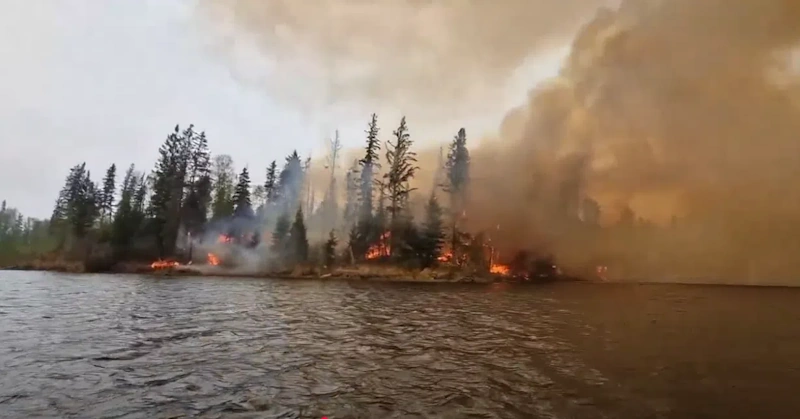A majority of Canadians don’t believe the country is adequately prepared for natural disasters, according to new polling released Thursday by the Insurance Bureau of Canada.
The survey found 58 per cent of respondents said Canada has not prepared communities for disasters such as floods, wildfires and severe storms. Another 61 per cent said they aren’t confident governments are working together to prepare for future risks.
Support was strong, however, for creating a national emergency management agency, with 80 per cent of Canadians in favour of an independent body to coordinate disaster response across jurisdictions.
Celyeste Power, president and CEO of the Insurance Bureau of Canada, said the findings reflect years of escalating climate-related disasters and a lack of coordination among governments.
“These survey results from Canadians are not surprising but should serve as a much-needed wake-up call,” Power said in a statement. “As severe weather events increase in frequency and severity, Canadians expect all orders of government to work together to ensure communities are protected.”
The bureau said insured losses from severe weather reached more than $9 billion in 2024 — the highest annual total on record. In response, the industry group is renewing its call for a national resilience strategy.
Its three-point plan calls for stricter building standards and better land-use decisions to avoid placing homes in high-risk areas, investments in resilient infrastructure and hazard mapping, and closing insurance protection gaps by encouraging risk-based pricing through public-private partnerships.
The bureau is also pushing for a National Summit on Disaster Resilience, similar to a 2024 federal summit on auto theft, to develop a coordinated action plan.
“We have all seen the warning signs — storms, devastation, lives lost, homes destroyed,” said Power. “In the face of these increasing risks, Canada must set an ambitious goal: to become the best in the world when it comes to preparing for, responding to and recovering from natural disasters.”
The poll was conducted online from Aug. 20 to 22 among 1,506 members of the Angus Reid Forum. A comparable probability sample would carry a margin of error of plus or minus 2.5 percentage points, 19 times out of 20.
